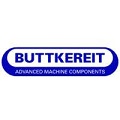
Posted to News on 16th Apr 2018, 11:09
EEF and Santander Mechanical Equipment Sector Bulletin
A new report from Santander UK and EEF on the UK's mechanical equipment industry concludes that growth will come from intelligent manufacturing, "4IR' technologies, and renewable energy demand. Other near-term opportunities include upscaling the "after sales and service' market, fulfilling demand from the global construction equipment industry, and new funding models such as leasing. Export opportunities are key for the sector, with over half the demand generated from overseas sales
The UK's second biggest manufacturing employer has opportunities for growth according to a new sector report from Santander and manufacturing organisation EEF. Manufacturing as a sector enjoyed an excellent year in 2017 expanding at its fastest pace since 2014.
Encouragingly, the healthy performance was broad based across sub sectors, but as the industry continues to thrive, the strong global economy is also bringing investment back online, and pushing the UK's 11bn mechanical equipment manufacturers to keep up with the digitalisation and modernisation of the supply chain. Intelligent manufacturing, the rise of automation and other Fourth Industrial Revolution (4IR) technologies, and increasing demand for renewable energy equipment are central to the future growth and success of the UK's mechanical equipment industry. In an industry worth 11 billion to the UK economy in terms of Gross Value Add, growing sector exports internationally is also vital to secure the long-term success.
While automation, digitalisation and the renewables sector are longer term, global trends, there are also a number of near-term opportunities which mechanical equipment manufacturers should grasp in order grow their market share and output, according to the EEF and Santander UK. Three of these are:
1. After-sales market
The nature of mechanical equipment products - namely their role as a capital investment by other businesses - means they tend to have longer lifespans than products in other branches of manufacturing. This has led to the after-sales industry, and "servitisation" business models growing in importance for the sector.
2. Global construction equipment industry
The global construction equipment market is set to grow to a value of $180.7 billion by 2021. This would equal a 7 per cent compound annual growth rate since 2015, and represents a major opportunity for specialised construction equipment manufacturers in the UK.
3. New financial models - leasing
Purchasing mechanical equipment represents an important investment in terms of future productivity, but may not always be viable. This has led to some big companies in the mechanical equipment market starting to use their size, and financial clout, to offer finance plans in order to increase their sales and revenues, and to provide an additional service to clients.
According to the report, UK government schemes including the Clean Growth Strategy, and carbon budgets which have the aim of reducing greenhouse gas emissions by 80 per cent by 2050, will see renewable energy technologies rapidly grow in importance. Mechanical equipment manufacturers, and specifically specialised oil extraction equipment manufacturers will need to adapt and focus on the equipment needed for the production and distribution of renewable energy equipment - for example, hydro"electrical turbines, fuel cells and biomass systems.
The report emphasises that trade is essential to the mechanical equipment sector's standing and performance. Some 55 per cent of all UK firms are classified as either an importer and/or exporter of goods and services, considerably higher than the manufacturing average at 33.5 per cent, and the mechanical equipment sector is one of the most export intensive, with almost half of its demand generated from overseas sales.
In 2017, the sector generated 33 billion from exports and since 2000, the sector has seen foreign demand for its goods increase by almost a half (46 per cent). Despite this, the sector has seen its trade position deteriorate as other countries, both developed and developing, have expanded their mechanical equipment industries at the expense of the UK.
New markets abroad
Martyn Jenkins, Economist at EEF says: "Our sector bulletin shines a light on the often less heralded mechanical equipment sector, highlighting its role as a critical pillar in manufacturing and wider UK economy. The success of the sector in continuing to evolve its production processes in the digital age, as well as seek out new markets abroad stands it in good stead for the future. That said, policy makers must continue to support this vital sector by ensuring the UK business environment is cost competitive, trade links are retained and the longstanding productivity issue is addressed."
Paul Brooks, Head of Manufacturing at Santander Corporate & Commercial says: "Santander is dedicated to helping UK manufacturers invest for growth and to expand. We are particularly focused on helping manufacturers capitalise on export and international trading opportunities and with over half of mechanical equipment sales coming from overseas, we see this as another massive opportunity. We have dedicated expertise and global insights that can truly support niche manufacturers such as mechanical equipment firms grow through exports, as well as take advantage of wider social and economic trends such as automation, robotics and smart tech."
The mechanical equipment sector, and the development of machinery, was behind one of the greatest advances in human history, the Industrial Revolution. While the sector has gone into relative decline since then, its importance and standing in UK manufacturing remains critical, given that nearly every workplace in every industry uses some form of machinery in production. Mechanical equipment manufacturers will therefore need to adapt and put greater emphasis on producing innovative and modernise equipment fit for the 4IR world.
The EEF and Santander Mechanical Equipment Sector Bulletin can be downloaded from www.santandercb.co.uk.
Make UK (previously known as EEF)
Broadway House
Tothill Street
SW1H 9NQ
UNITED KINGDOM
+44 (0)808 168 5874






























